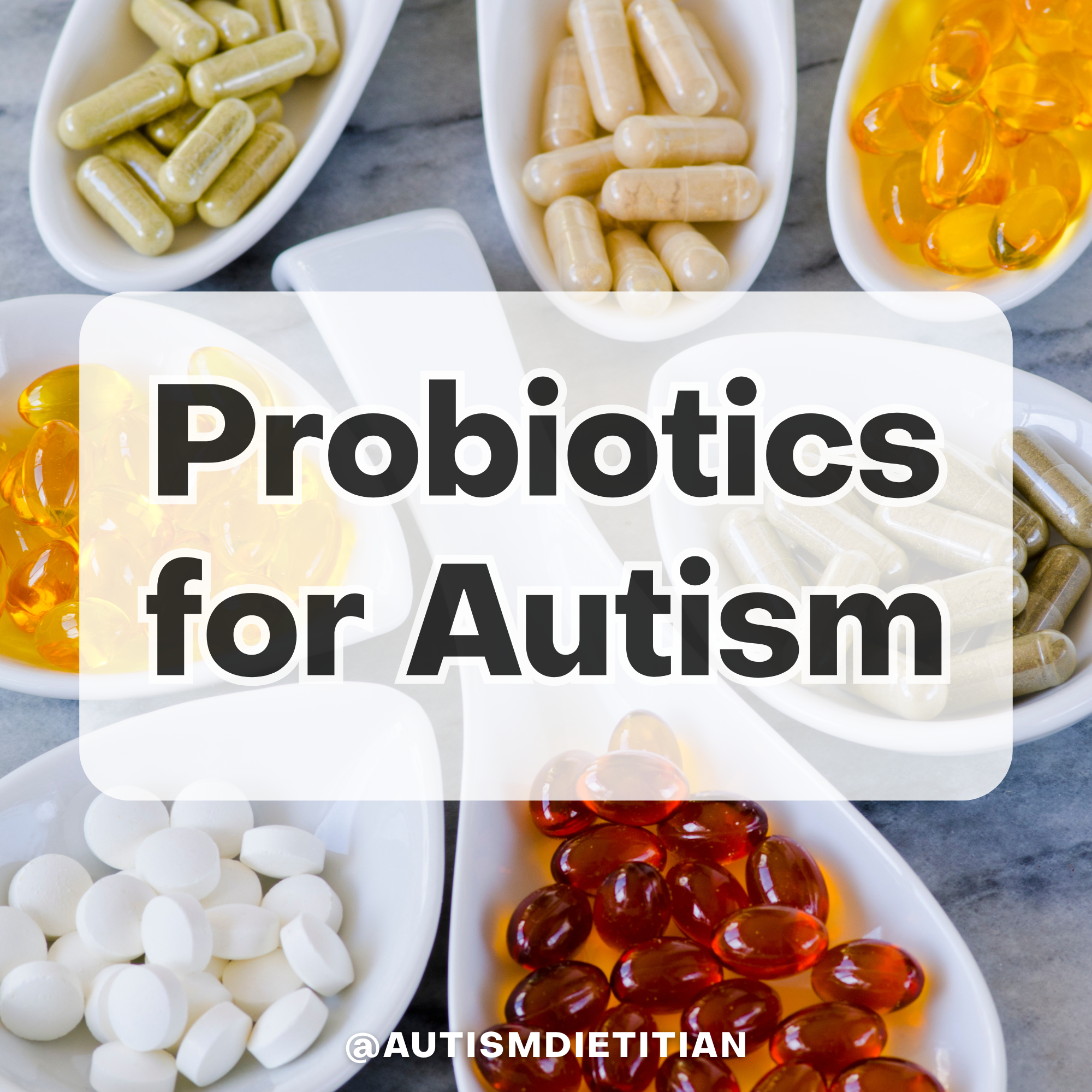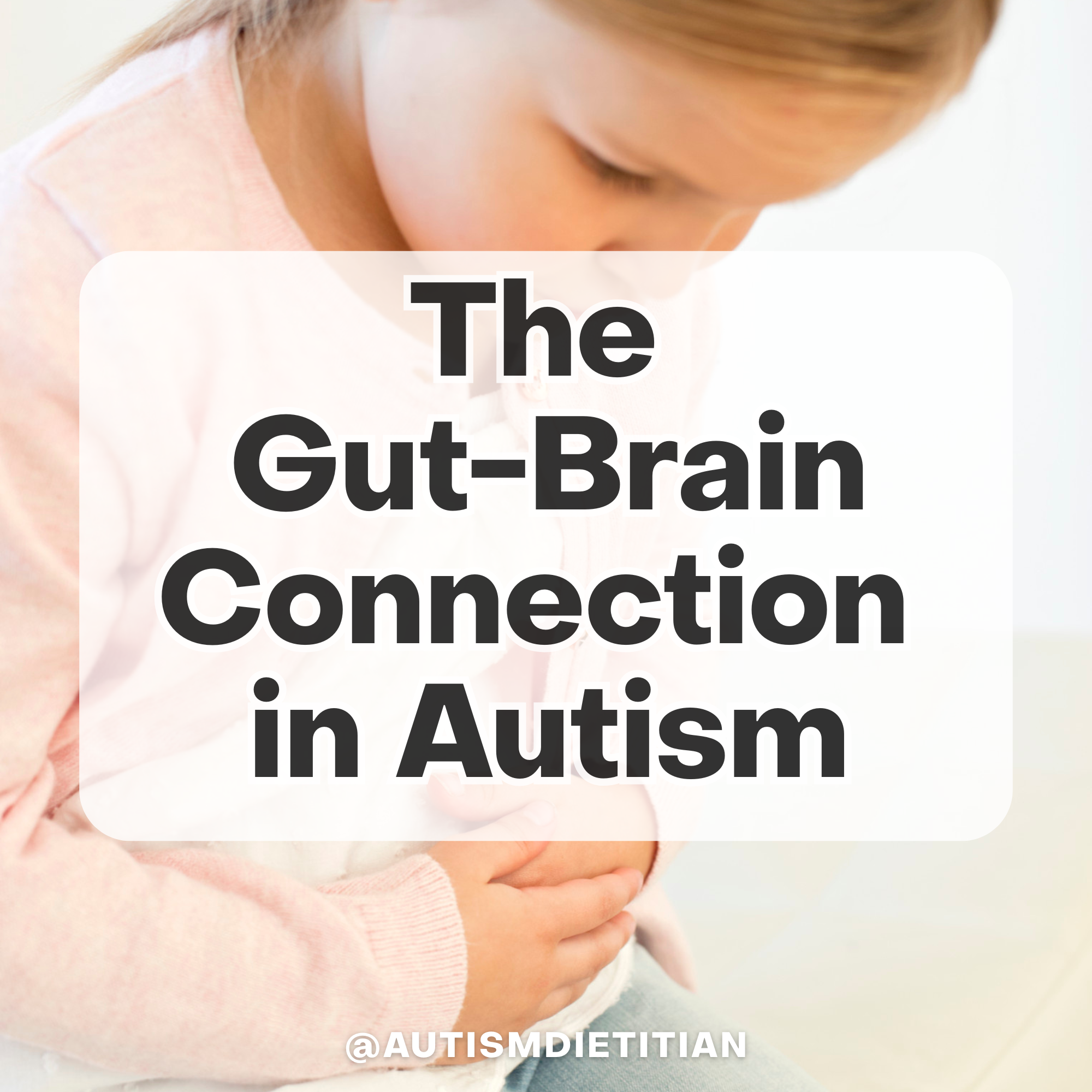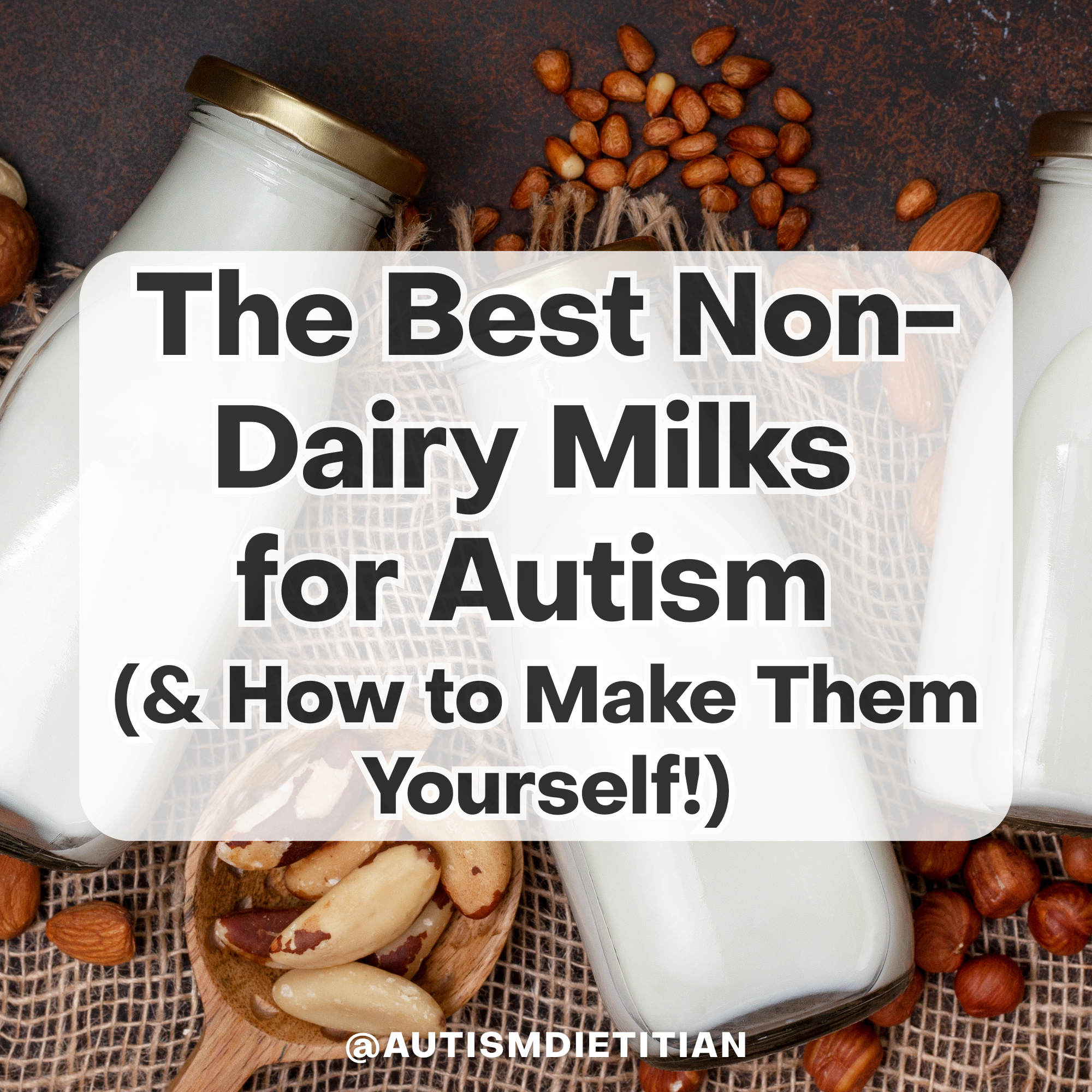Autism Dietitian Blog
Featured
Autism Food List - Snack Ideas
Planning healthy snacks isn’t always simple, so we’ve compiled 18 nutrition-packed, easy snack ideas that you can add to your autism food list.
Fish Oil for Autism (Omega-3 and Autism)
Fish oil for autism is considered a go-to treatment for many. Individuals have used it with success as part of a treatment plan to improve symptoms of autism.
Food Allergies vs Food Sensitivities - What's the Difference?
Children with autism are more likely to have reactions to food - but there are varying food reactions that can occur. Read more about the symptoms of each, connection to autism, and how to test for them.
The GFCF Diet for Autism
The GFCF diet for autism can be a life-changing tool for parents and clinicians to utilize in improving common struggles that children with autism experience. Learn all about the research behind the diet, which foods to avoid, and which foods to use instead!
Mitochondrial Dysfunction and Autism: What You Need to Know
Mitochondria take the molecules from the foods we eat and turn them into energy. When our mitochondria aren’t working appropriately, it can cause major side effects. Read more to learn about the common symptoms, how to support the mitochondria, and which nutrients prevent damage.
The Best Multivitamins for Children with Autism
Multivitamins are a great way to fill in the gaps for rigid eaters and to replenish other missing nutrients. In this blog, we cover who should take a multivitamin, what you should look for in a multivitamin, and my favorite recommendations!
5 Ways to Treat Iron Deficiency in Autism
Iron deficiency is the most common nutrient deficiency in the world. Children with autism may be at higher risk in developing iron-deficiency anemia. Learn the symptoms, how to test for iron deficiency, and how to treat it with diet, supplements, and lifestyle changes.
3 Tips to Get Your Picky Eater to Try New Foods
Picky eating is one of the most common complaints of the parents that I work with daily! For children with autism, the root of picky eating is often sensory issues. Follow these 3 steps to encourage your child to start trying new foods in an encouraging and stress-free way!
6 Ways to Calm Anxiety Naturally
Individuals with autism have a higher likelihood of anxiety and depression than the general population. Nutrition can be an effective way to prevent and manage anxiety, especially when targeting the root cause.
[RECIPE] Picky Eater-Approved Black Bean Brownies
My famous recipe for kid-approved black bean brownies! This recipe has no processed sugar, is naturally gluten, egg, soy, & dairy-free, and has no artificial colors or flavors.
Gluten-Free Diet for Autism
It is common in the ASD community to try a Gluten-Free (GF) Diet. While many believe this is just a fad, there actually is clinical backing to the efficacy of this diet.
The 5 Best Supplements for Restful Sleep
While diet is one piece of the puzzle, another piece can be nutrition supplements. Certain supplements can be extremely helpful when it comes to sleep quality and ease winding down for bed and falling asleep.
Dairy-Free Diet for Autism
Casein, the protein in cow’s milk, can have a huge effect on children on the autism spectrum. Read more about the reasoning behind the diet, foods to eat and avoid, my favorite brands, and tips on becoming dairy-free for selective eaters.
The Gut-Brain Connection in Autism
The gut has been deemed the “second brain”. The makeup of our microbiome can have a significant impact on your child’s cognitive function, speech, and focus. Read more to find out how you can test for these imbalances and how to treat them naturally.
Sensory Processing Disorder - How It Can Cause Picky Eating & More!
Since eating is one of the most sensory-rich activities, Sensory Processing Disorder can be a major contributor to a picky diet and even lead to other issues like nutrient deficiency, gastrointestinal issues, and blood sugar abnormalities.
Sleep Tips for Your Child with Autism or ADHD
Over half of children with autism – and possibly as many as four in five – have one or more chronic sleep problems”. Losing sleep not only impacts mood and behavior but also causes adverse effects on their social interaction, academic achievement, and well-being of the care-givers. Learn some tips to help your child sleep at night without the need of medications.






















![[RECIPE] Picky Eater-Approved Black Bean Brownies](https://images.squarespace-cdn.com/content/v1/58d1ef81e3df2824810879b0/1753735822964-52BIXAEZ46FGIOU3HBAR/%5BRECIPE%5D+Picky+Eater-Approved+Black+Bean+Brownies.png)




